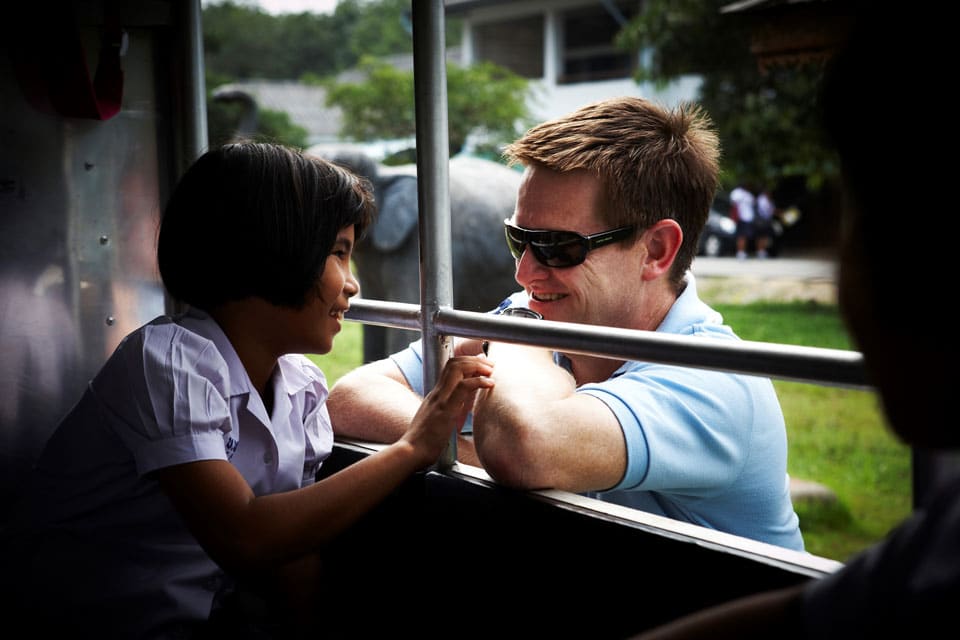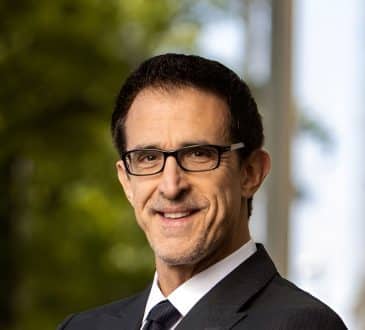What my experience in disaster recovery taught me about leadership

The value of presence occurred to me while standing in a small community hall in Iwate Prefecture, Japan, in early 2011. It was the aftermath of the tsunami that devastated so much of the east coast of that beautiful country and claimed close to 20000 lives.
Once again, I found myself in a foreign country, one that I had come to love, walking through the devastation, the enormity of which I had never seen before. I was in Japan sharing insights and learnings with community leaders and first response agencies, after my time leading the Disaster Victim Identification process following the tsunami in Thailand in 2004, and the Bali bombings of 2002.
Traveling through the ravaged region, visiting and meeting with locals and community leaders, it was heartbreaking to see the human losses and the destruction of temples that had stood for hundreds of years. There were so many similarities, yet just as many contradictions to the aftermath of the tsunami in Thailand some six years prior. The level of destruction, the rising death toll, and the response from the Japanese agencies were both chillingly similar and vastly different at the same time. A consistent across both disaster fields though was the power and importance of presence of the leaders.
Mr Sato Sun was a community leader from a small fishing village that like many up and down the coast had experienced great destruction and loss of life. I had been invited to the community hall, which served as the meal centre for those who had lost their homes. Each night they gathered in this small hall for their meal, where Mr Sato joined them, as he had done every evening since the first meal was served. The thing was Mr Sato’s house had not been destroyed; he had not sustained personal any loss as his house was on a hill safely above the rising waters. But as a community leader he joined those who had suffered to share in their loss and to demonstrate by his presence that he cared and that he understood their loss.
Leaders don’t have to have the answers or bring about change
He didn’t have the answers. He couldn’t immediately solve their problems, but through his presence he could convey hope to those who had little. He didn’t need to be there to understand the infrastructure challenges that lay ahead for the community. He wasn’t gathering otherwise unobtainable information. What he was doing was demonstrating to those who needed to know that people cared. He didn’t have the answers. He couldn’t immediately solve their problems, but through his presence he could convey hope to those who had little.
Particularly in times of crisis and disaster we don’t expect that our leaders will have all the answers or bring about the necessary change immediately. But what we do expect is that they will be present. It conveys two things; firstly as a leader you understand the challenges that are faced on the ground and secondly that you care. From a leadership point of view we may find that we are best informed by remaining in a control command centre were all of the information flows. Truth be known that is the likely best place to be informed. However, if we remain invisible to those on the ground, those leading the recovery, those who have suffered the most, then they make the assumption that the leaders simply can’t understand and don’t care.
The expectation is that you will be present
There was no expectation upon former Prime Minister Scott Morrison that he would be on the fire ground during the 2019/2020 deadly fires holding a hose, and he made it clear when he said as much. But what the Australian public could expect of their leader was that during the most devastating bushfires to hit the country in decades, that he may delay his beachside holiday in Hawaii and remain at home. He wasn’t expected to fight the fires, that wasn’t his job. But he was expected to demonstrate that he cared by being present.
If ever a lack of presence conveyed a lack of compassion, empathy and understanding it was here. It was a direct failure of leadership and the Australian voting public punished him for it.
The value of presence is not confined to crisis and disaster scenes. The simple act of being present with your team will go an enormous way to building long lasting and meaningful motivation. We like to feel we matter, we like to be listened too and occasionally we like to have our opinions sought. When leaders take the time to do that, they are investing in the culture and are building loyalty and commitment.
If there was one consistent in the good leaders I worked with during times of crisis, be that in Thailand, Indonesia, Japan, Saudi Arabia or of course here at home in Australia, it was that they cared and they invested in the teams they led by being present. It wasn’t the technical competence that made them great leaders, it was the respect they earned from the teams they lead.
We don’t have to have all the answers, we do need to demonstrate we care and we understand the challenges that are faced and we do that through presence.
Written by Peter Baines.
Have you read?
Top Women CEOs of America’s largest public companies (2023 List).
CEOs Of The Top Footwear Companies You Should Know.
Top CEOs of the World’s Largest Media Companies In 2023.
Best International High Schools In The World, 2023.
Revealed: The World’s Best Airline CEOs, 2023.
Bring the best of the CEOWORLD magazine's global journalism to audiences in the United States and around the world. - Add CEOWORLD magazine to your Google News feed.
Follow CEOWORLD magazine headlines on: Google News, LinkedIn, Twitter, and Facebook.
Copyright 2025 The CEOWORLD magazine. All rights reserved. This material (and any extract from it) must not be copied, redistributed or placed on any website, without CEOWORLD magazine' prior written consent. For media queries, please contact: info@ceoworld.biz











